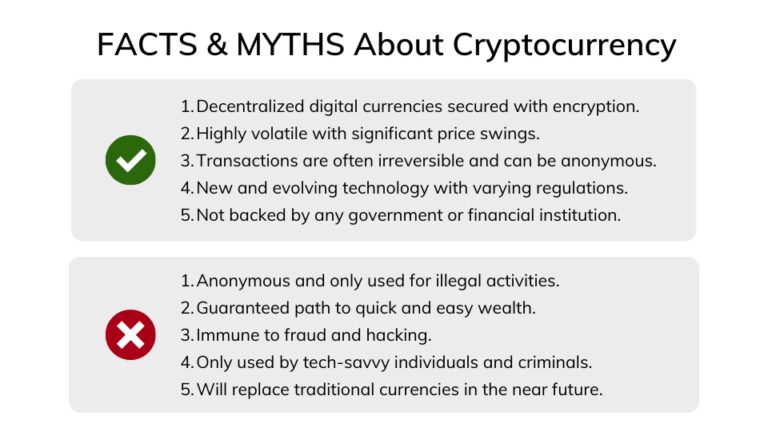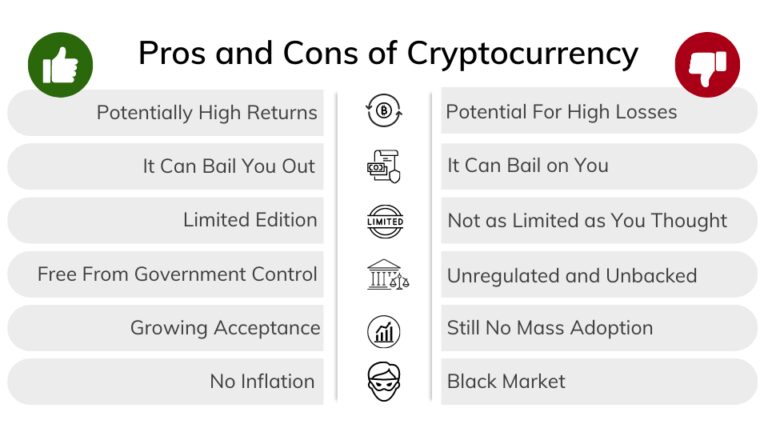Dive into the future of legal agreements with our insightful exploration of Smart Contracts. Discover how blockchain technology is radically transforming law practices, boosting security and efficiency, and revolutionizing the legal landscape as we know it. Join us on this journey into the future of 2024’s legal agreements.

In the modern digital world, traditional contracts and legal agreements are gradually being replaced with technology-driven solutions. Among these solutions, smart contracts are emerging as a significant game-changer. But what are smart contracts, and how do they work in legal agreements? Let’s explore.
Smart contracts are self-executing contracts with the terms of the agreement directly written into lines of code. These digital contracts are secure, automatic, and need no intermediaries which makes them cost-effective and time-efficient. The concept of smart contracts was first proposed by Nick Szabo, a computer scientist and cryptographer, in 1994. Even though it was well before bitcoin and blockchain, the invention of blockchain technology has facilitated and revolutionized the practical application of smart contracts.
Smart contracts work based on ‘If-Then’ programming logic. Once pre-set conditions are fulfilled, they automatically execute the terms of the agreement without any manual intervention. Smart contracts are encrypted and stored on a blockchain, which makes them tamper-proof, transparent, and traceable.
Smart contracts offer numerous advantages in legal agreements. They enhance trust between parties as the execution is automatic and guaranteed once conditions are met. They provide enhanced security through encryption and blockchain storage. Moreover, they save time and costs as transactions happen without intermediaries.
However, smart contracts also come with disadvantages. They require a good knowledge of coding, are difficult to amend once on the blockchain, and there can be legal uncertainties due to their relatively new nature. Also, erroneous code or unforeseen scenarios might lead to undesired outcomes.
The increasing adoption of smart contracts in sectors like finance, real estate, healthcare, and even top crypto casinos demonstrates their practical application and potential. For a deeper understanding, you might want to check out Understanding Smart Contracts in Top Crypto Casinos that highlights their role and impact in the digital casino industry.
Smart contracts offer far-reaching potential for a variety of legal agreements due to their efficiency, transparency, and trustworthiness. This section will explore the types of legal agreements that can particularly benefit from the application of smart contracts.
Employment contracts, being one of the most common legal agreements across all industries, can greatly benefit from the deployment of smart contracts. Smart contracts can automate the stipulations within an employment agreement such as payment schedule, job responsibilities, and performance-based incentives. They can significantly reduce administrative workload, while ensuring the rights and obligations of both parties are upheld with clarity and fairness. Furthermore, the immutable nature of smart contracts guarantees that the terms of the agreement are respected.
Smart contracts can revolutionize rental and lease agreements by streamlining the process. A smart contract can automatically handle monthly rental payments, systematize the return of security deposits, and even enforce property maintenance requirements. By automating these processes, smart contracts can minimize human intervention and potential errors, while enhancing reliability and trust between parties.
Smart contracts also have a strong foothold in the world of online gambling and betting. Online platforms such as Bitsler, MyStake, and Sportsbet.io employ smart contracts to guarantee transparent and fair outcomes. These contracts can self-execute payouts based on game outcomes, which eliminates the possibility of manipulation and boosts player confidence. If you’d like to understand more about how top crypto casinos utilize smart contracts, read our analysis on How Ethereum and Tether Shape Casino Choices.
Overall, regardless of their specific utilization, smart contracts hold the potential to transform the face of legal agreements. The blend of automation, transparency, and security that they provide makes them an invaluable tool for a wide array of legal agreements in the modern digital world.

Before delving into the role of blockchain in smart contracts, it’s important to have a fundamental understanding of what blockchain is. Simply put, blockchain is a digital ledger that records data or transactions across many computers so that any involved record cannot be altered retroactively, without the alteration of all subsequent blocks. This technology brings a level of transparency, security, and immutability that’s lacking in traditional systems.
Blockchain is the underlying technology that powers cryptocurrencies like Bitcoin and Ethereum. In essence, it’s a distributed ledger that allows data to be stored globally on thoafricands of servers – while ensuring anyone on the network can see everyone else’s entries in real-time. This not only makes it extremely difficult for one user to gain control of, or game, the network, but also secures the data, making it nearly impossible to hack.
Blockchain’s strength lies in its simplicity. It’s just blocks of data chained together using cryptographic algorithms, where each block contains a record of transactions. When a block is full, a new one is created, carrying a reference to the previous block, hence creating a chain of blocks – a blockchain. In essence, the history of every transaction lives in each block, ensuring transparency and trustworthiness.
Smart contracts operate on the principles of the blockchain, taking advantage of the technology’s immutability, transparency, and decentralized nature. Smart contracts are pieces of code saved on a blockchain that automatically execute agreements once predetermined conditions are met. As such, they eliminate the need for a middleman and allow for precise, automatable transactions and agreements between parties.
The blockchain serves as the neutral ground where smart contracts run. It ensures that no one party controls the agreement, as the blockchain is immutable and no changes can be made once a contract is deployed. This process significantly reduces the chance of fraud, increases efficiency by automating tasks that would typically require human intervention, and ensures a high level of data integrity and security.
Blockchain technology is increasingly being used in online gaming platforms, with some like Fortunejack, Thunderpick, and Trust Dice leveraging it for legal agreements. For instance, when a user places a bet on these platforms, a smart contract is created which automatically pays out winnings if the bet is successful. This has effectively revolutionized how online gambling operates, as it ensures transparency and fairness, while eliminating the need for human intervention to validate bets and transfers.
Blockchain-based smart contracts also give players the assurance that the casino cannot tamper with the outcome of their bets. The code for these contracts is typically open-source and can be audited by anyone, thus further enhancing transparency and trust in the legitimacy of these platforms.
This is just one of many examples showcasing the transformative power of blockchain in smart contracts for legal agreements. To learn more about how blockchain casinos work and strategies to win in them, feel free to check out our guide on Winning Strategies in Blockchain Casinos.

As innovative and efficient as they may be, smart contracts face a unique set of legal and regulatory challenges. Their intersection with existing laws, the difficulty of entering into legal disputes, and the overall regulatory landscape pose considerable constraints on their wider acceptance.
Although smart contracts are designed to automate and ensure the fulfillment of an agreement, their legal status is not yet universally recognized. In some countries, the absence of human intervention in the execution of a contract might not be legally binding. The pseudonymous nature of blockchain transactions also raises issues concerning the legal identity of contract parties.
Another perplexing issue is the question of jurisdiction. Given that smart contracts operate on a global network (blockchain), it can be challenging to determine which laws apply in case of a dispute. Additionally, as smart contracts are immutable and cannot be changed once deployed, they pose difficulties when it comes to correcting mistakes or addressing unforeseen circumstances.
The regulatory environment for smart contracts varies greatly from country to country. While some countries have enacted progressive legislation recognizing the validity of smart contracts, others have not yet adjusted their laws and regulations to include this digital innovation.
For instance, in 2017, the Arizona State Senate in the US passed a bill that legally recognizes blockchain signatures and smart contracts. In contrast, several other countries have imposed outright bans or severe restrictions on the use of blockchain technology and by extension, smart contracts.
Despite these challenges, many platforms have successfully incorporated smart contracts into their operations. For example, online gaming platforms like Roobet, BC GAME, and Vave use smart contracts to ensure fairness and transparency in their games.
These platforms manage legal uncertainties by enforcing strict KYC (Know Your Customer) procedures and adhering to AML (Anti-Money Laundering) regulations. This way, they can establish the identities of their users and prevent illegal activities.
To navigate the regulatory landscape, these platforms often operate in jurisdictions that are more friendly towards blockchain technology and provide clear legal frameworks for their operation.
For more insights on how to navigate the challenges of smart contracts in legal agreements, you might want to check Effective Crypto Poker Mastering Tips for Legal Agreements. This resource offers additional advice to keep your smart contract interactions within the bounds of the law while maximizing your potential benefits.

The future of legal agreements and smart contracts appears promising and transformative, with emerging trends and possible impacts on various industries. New advancements are shaping how legal agreements are designed, executed, and enforced, thanks to smart contracts.
One key emerging trend in the use of smart contracts for legal agreements is their growing adoption beyond the financial sector. Smart contracts are being integrated into sectors like real estate, healthcare, supply chain management, and online gambling. They’re also becoming more user-friendly, with platforms offering intuitive interfaces and templates for creating and implementing smart contracts, making the technology accessible even for non-tech savvy individuals.
Another noteworthy trend is the growing legal recognition of smart contracts. Some jurisdictions have begun acknowledging smart contracts as binding legal agreements, increasing their credibility and potential for widespread adoption. Additionally, efforts are being made to standardize smart contract technology, which will further enhance interoperability and functionality.
With the use of smart contracts, each industry is bound to experience a shift in how they operate. Let’s take the online betting sector as an example. Platforms like Freshbet, Velobet, and 0x.bet are revolutionizing online betting by leveraging smart contracts to ensure transparency, fairness, and immediate payouts. This results in a more trustworthy and efficient gaming experience.
In real estate, rental and lease agreements can be executed and automatically enforced through smart contracts, ensuring timely payments and adherence to the agreed terms. Potential disputes can be minimized as the smart contracts execute only the pre-agreed terms between parties.
Even in complex supply chains, smart contracts can simplify processes, reduce paperwork, and ensure all trading parties comply with the terms of agreement, thus enhancing efficiency, transparency, and trust.
The future of smart contracts in legal agreements seems bright with perpetual advancements in technology. As smart contracts become more accepted, we could see a shift from traditional paper-based legal agreements to digital contracts. This could result in faster transactions, lower costs, and decreased dependence on intermediaries.
However, as futuristic as smart contracts sound, it’s important to fully understand the mechanics of buying cryptocurrencies that facilitate these agreements. A great resource is our Step-by-step Guide to Buying Crypto for Legal Agreements, which provides an easy-to-follow process for acquiring cryptocurrencies.
With the continued evolution of blockchain technology, smart contracts will keep getting smarter, ultimately revolutionizing not just the legal landscape, but multiple other industries as well.

